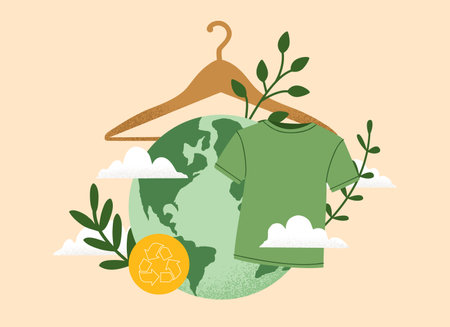Sustainable Fashion: A New Era of Style

In recent years, sustainable fashion has transformed from a niche trend into a global movement, driven by increasing awareness of environmental issues and a growing demand for ethical consumerism. This paradigm shift in the fashion industry is challenging traditional practices and redefining what it means to be stylish.
What is Sustainable Fashion?
Sustainable fashion is a holistic approach to designing, producing, and consuming clothing in ways that protect the environment and promote social responsibility. It emphasises eco-friendly materials, ethical production practices, and longevity, aiming to reduce the negative impacts of fashion on the planet and people.
The Environmental Impact of Fashion
The fashion industry is one of the largest contributors to pollution and environmental degradation.
- Water Usage: Producing a single cotton t-shirt can consume up to 2,700 litres of water.
- Waste Generation: Fast fashion encourages disposable clothing, resulting in millions of tons of textile waste annually.
- Carbon Emissions: The industry accounts for approximately 10% of global carbon emissions.
These alarming statistics have pushed both consumers and brands to rethink their approach to fashion.
Key Elements of Sustainable Fashion
- Eco-Friendly Materials
Sustainable fashion prioritises materials that are renewable, biodegradable, or recycled.- Organic cotton, hemp, and bamboo reduce water usage and pesticide reliance.
- Recycled polyester and upcycled fabrics give new life to old materials.
- Plant-based alternatives, like Piñatex (pineapple leather), replace animal-derived products.
- Ethical Production Practices
Brands committed to sustainability ensure fair wages, safe working conditions, and respect for workers’ rights. Initiatives like the Fair Trade Certification are becoming more prominent in sustainable fashion. - Longevity and Circularity
Instead of promoting rapid trends, sustainable fashion encourages timeless designs and durable garments. Circular fashion takes it further by creating systems for recycling and reusing clothing.
Brands Leading the Charge
Several brands are making sustainability their core philosophy:
- Patagonia: Known for its environmental activism, Patagonia uses recycled materials and offers a repair program to extend the life of its products.
- Eileen Fisher: The brand’s “Renew” program takes back used clothing, refurbishes it, and resells it.
- Stella McCartney: A pioneer in vegan and sustainable fashion, Stella McCartney incorporates innovative materials like mushroom leather.
The Role of Consumers
Consumers play a crucial role in driving the demand for sustainable fashion. Here’s how you can contribute:
- Choose Quality Over Quantity
Invest in versatile, high-quality pieces that can be worn for years instead of chasing fleeting trends. - Support Sustainable Brands
Research and shop from brands that align with your values, prioritising ethical practices and eco-friendly materials.
Repurpose and Recycle
Donate or upcycle old clothes instead of discarding them. Participating in clothing swaps or buying second-hand can also reduce waste.

Challenges in Sustainable Fashion
While the movement has made significant strides, it still faces challenges:
- Cost: Sustainable products often come with higher price tags due to ethical production and quality materials.
- Scalability: Small-scale sustainable brands struggle to compete with fast fashion giants.
- Greenwashing: Some companies falsely market their products as “sustainable” without meaningful actions, misleading consumers.
Future of Sustainable Fashion
The future of sustainable fashion looks promising as technology and innovation continue to drive change.
- Biodegradable Textiles: Researchers are developing fabrics that decompose naturally, leaving no waste behind.
- Digital Fashion: Virtual clothing for social media and gaming can reduce the demand for physical garments.
- Blockchain Transparency: Technology can ensure supply chain transparency, holding brands accountable for their practices.
Conclusion
Sustainable fashion is more than a trend; it’s a necessity in today’s world. By making mindful choices, both brands and consumers can contribute to a more ethical and eco-friendly industry. As the movement grows, it holds the potential to transform not only the way we dress but also the way we think about our impact on the planet.
Stay tuned for the next blog on Minimalist Fashion: The Art of Dressing Simply!